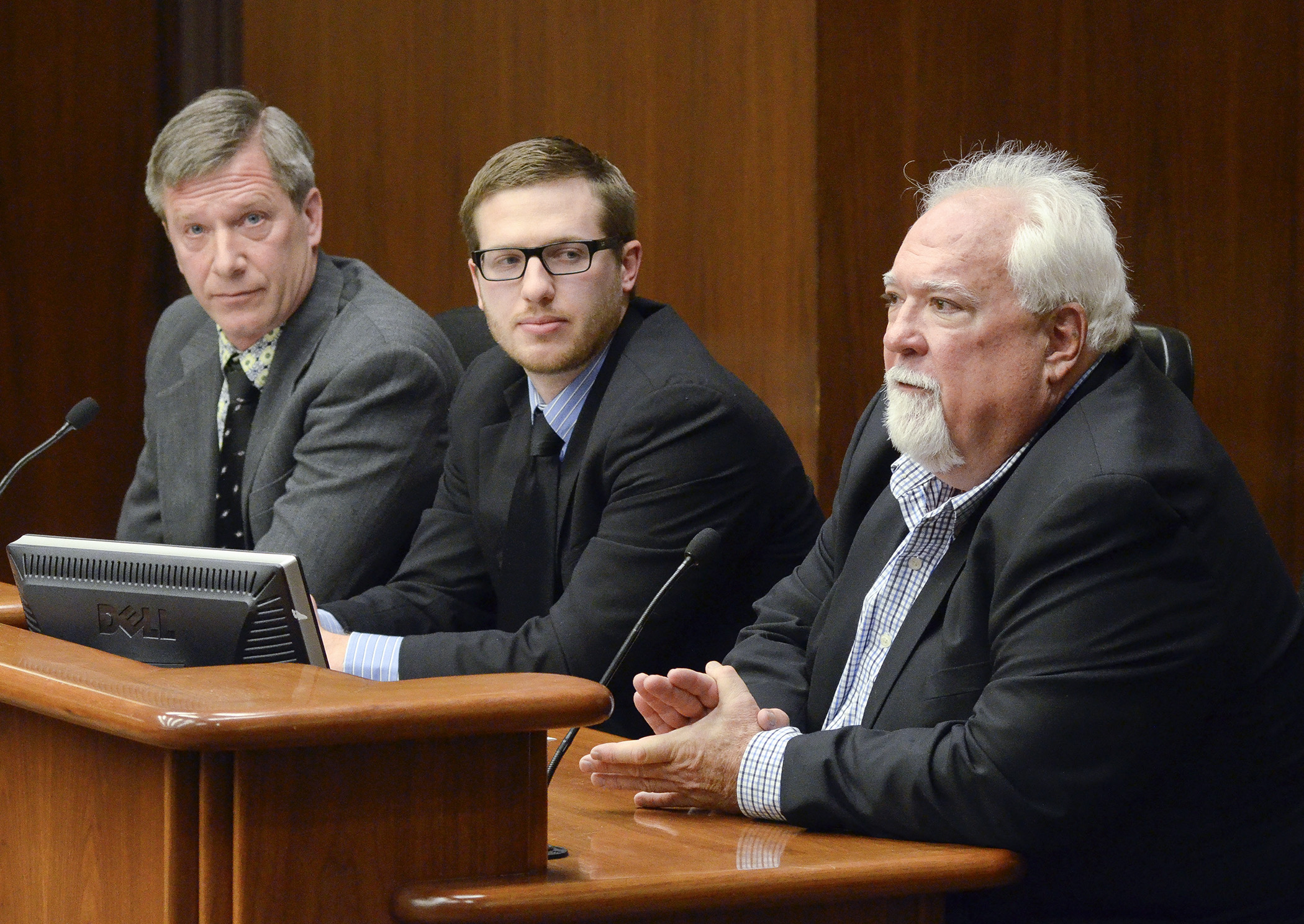Mission to Cuba would make Minnesota farmers first to market

In mid-December the Obama administration announced it would begin to normalize relations with Cuba, opening the door to potentially lucrative new markets. Now, Minnesota farmers want to be among the first to move through it.
The House Agriculture Finance Committee heard legislation Tuesday which seeks to help them do just that. HF772, sponsored by Rep. Jack Considine Jr. (DFL-Mankato), would provide $100,000 to identify existing and emerging opportunities in Cuba for Minnesota’s agricultural producers.
“I believe there’s an opportunity for the best family farmers in the world, here in Minnesota, to expand the markets in Cuba as the restrictions are being lifted,” Considine said. “I’d like to see us get down there first.”
The bill, which was laid over for possible omnibus bill inclusion, would also direct the Department of Agriculture to effectively communicate these opportunities to producers and processors. The companion, SF733, is sponsored by Sen. Dan Sparks (DFL-Austin) and awaits action by the Senate Finance Committee.
Considine said $50,000 would be used for a trade mission to Cuba. It would develop the necessary contacts and learn the rules and regulations that must be navigated. Once those tasks are accomplished, the remaining money would be spent on outreach to Minnesota farmers explaining how to take advantage of their opportunities.
An ongoing relationship
Although the thaw in relations happened only recently, Minnesota agriculture producers have been selling their products in Cuba for some time. Former Gov. Jesse Ventura led a trade mission to the country in 2002, and a study done that same year by the Department of Agriculture predicted the economic impact of Minnesota’s ag exports to Cuba could eventually reach $45 million annually and create more than 900 jobs.
In 2013, Minnesota exported $20 million in agricultural products to Cuba, but Considine said he doesn’t believe $60 million “is an unrealistic figure.”
At least one family farmer agrees with that optimism. Cliff Kaehler – one of the operators of K-LER Cattle Company in St. Charles – has made numerous trips to Cuba and is bullish on the prospects of increased commerce with the island nation.
“Imagine an economy that hasn’t really progressed since the 60s, soon to be open for trade,” Kaehler said. “The question in my mind is how is Minnesota going to compete with other states and are we going to be the state that capitalizes on this huge market?”
One of the best ways to do this is by making the most of the “first-mover advantage,” according to Kaehler. This strategy helps Minnesota farmers gain the upper hand by establishing a presence, learning the Cuban system and how it is changing, and making connections.
“That’s incredibly important in any market or any business, but especially a foreign country,” Kaehler said.
As a small business, K-LER does not have the time, resources or capital to forge the needed ties on its own, and Kaehler believes there are “a ton of other companies in our position, that have this huge opportunity in front of us but can’t afford to take that risk right off the bat.”
Minnesota’s geography also gives it a leg up on other states with respect to Cuba. With many other state exports, commodities must first travel overland to reach the coasts. The Mississippi River, however, gives Minnesota’s products an obvious route to Cuba.
Despite all the trade that now goes on, Considine says it’s still difficult for Minnesota farmers to do business with Cuba. Money is needed upfront and must be held in a third-party bank in another country. But he believes those rules are changing and important new opportunities are on the way – provided Minnesota acts now.
“It seems to be win-win for everybody,” Considine said. “If we get down there first.”
Related Articles
Search Session Daily
Advanced Search OptionsPriority Dailies
Ways and Means Committee OKs proposed $512 million supplemental budget on party-line vote
By Mike Cook Meeting more needs or fiscal irresponsibility is one way to sum up the differences among the two parties on a supplemental spending package a year after a $72 billion state budg...
Meeting more needs or fiscal irresponsibility is one way to sum up the differences among the two parties on a supplemental spending package a year after a $72 billion state budg...
Minnesota’s projected budget surplus balloons to $3.7 billion, but fiscal pressure still looms
By Rob Hubbard Just as Minnesota has experienced a warmer winter than usual, so has the state’s budget outlook warmed over the past few months.
On Thursday, Minnesota Management and Budget...
Just as Minnesota has experienced a warmer winter than usual, so has the state’s budget outlook warmed over the past few months.
On Thursday, Minnesota Management and Budget...